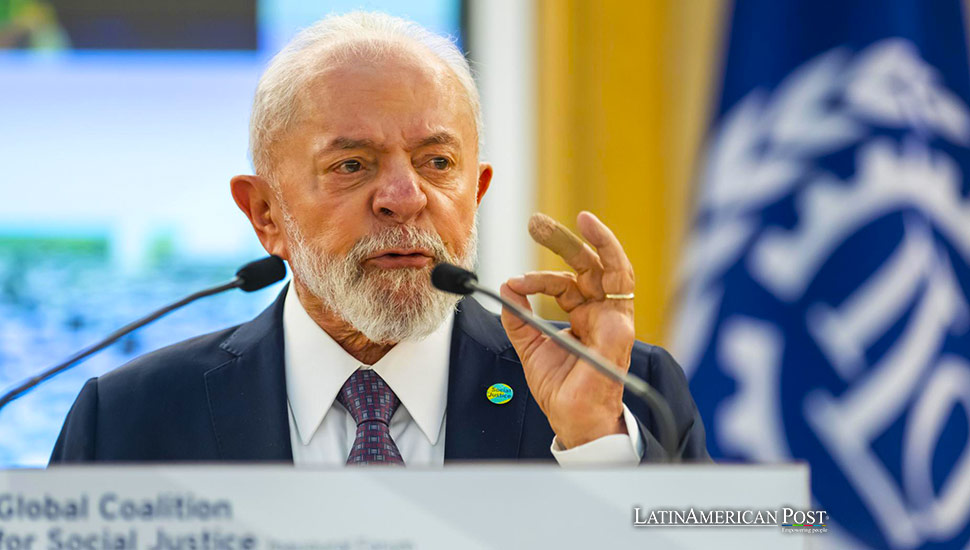Brazil’s Lula Calls for Inclusive AI at International Labor Conference

Brazilian President Luiz Inácio Lula da Silva urged the International Labour Organization (ILO) to promote an inclusive use of artificial intelligence (AI) that benefits the global south, emphasizing the need for technology to serve all countries, not just a few.
Brazilian President Luiz Inácio Lula da Silva called on the International Labour Organization (ILO) on Thursday to advocate for an inclusive use of artificial intelligence (AI) that benefits the global south. He emphasized that this transformative technology must not be monopolized by companies exploiting global data without compensating users.
“Artificial intelligence will radically transform our way of life, but we must act to ensure its benefits reach everyone and not just a select few countries that always get the lion’s share,” Lula stated during his speech at the ILO’s annual conference.
The Global Impact of AI
President Lula’s remarks highlight a critical issue facing the global south as AI technology advances rapidly. The unequal distribution of technological benefits and the concentration of AI development and ownership in a few industrialized nations pose significant challenges. Lula’s call to action reflects a growing concern that the global south could be left behind in this technological revolution.
Lula’s speech underscored the need for a fairer distribution of AI’s benefits, which he believes should be a priority for international organizations like the ILO. He argued that AI should serve the interests of powerful nations and multinational corporations and contribute to the development and prosperity of emerging economies.
“We need to ensure that AI serves the global community,” Lula said. “It should help bridge the gap between the developed and developing worlds rather than widen it.”
Representation in International Organizations
Lula also advocated for more excellent representation of developing countries in international organizations. He emphasized that Brazil would work towards eliminating the permanent seats of significant powers on the ILO’s governing body, which consists of representatives from workers, employers, and 28 governments. Ten of these seats are permanently occupied by the most industrially significant members, including Germany, Brazil, China, the United States, France, India, Italy, Japan, the United Kingdom, and Russia.
“The voice of developing countries is often muted in global forums,” Lula asserted. He cited the example of the International Olympic Committee (IOC), where some European countries have more members than the entire African continent. Lula argued that this imbalance reflects a broader issue of underrepresentation in vital international bodies.
A Call for Global Equity
Lula’s push for a more equitable power distribution within the ILO and other international organizations is part of a broader agenda to ensure that developing countries have a more significant say in global decision-making processes. He believes such reforms are necessary to address the economic and social disparities between the global north and south.
In the context of AI, Lula’s stance is particularly relevant. The technology has the potential to drive significant economic growth and improve living standards, but with inclusive policies, its benefits may be broadened to a few advanced economies. Lula’s call to action reminds us of the importance of global cooperation and the need for policies that promote inclusivity and fairness in the adoption of new technologies.
Lula’s speech also resonated with many leaders from developing nations who share similar concerns about the monopolization of AI technology. AI has immense potential to revolutionize industries such as healthcare, education, and agriculture in developing countries, but these opportunities can only be realized if there is equitable access to AI technologies and the necessary infrastructure.
The Path Forward
Significant efforts are needed at national and international levels to achieve the inclusive vision that Lula advocates. Countries in the global south must invest in education and training to build a workforce capable of leveraging AI technologies. Additionally, international cooperation is essential to ensure that the benefits of AI are shared equitably.
Lula’s proposal to reform the ILO’s governing body reflects a broader trend toward democratizing international organizations. By giving developing countries a stronger voice, these institutions can become more representative and better equipped to address global challenges.
President Lula’s address at the ILO conference was a powerful call for inclusive development in the age of AI. His emphasis on ensuring that AI benefits all countries, particularly those in the global south, highlights the need for a more equitable global order. Lula’s vision of a world where technology serves everyone, not just a privileged few, is a timely reminder of the importance of international solidarity and cooperation in rapid technological change.
Also read: IATA Challenges Brazil on High Jet Fuel Costs, Seeks Change
As the world continues to navigate the complexities of AI and its implications, Lula’s call to action is a crucial reminder of the need to prioritize inclusivity and fairness. By working together, the global community can ensure that the benefits of AI are distributed equitably, fostering a more just and prosperous world for all.





